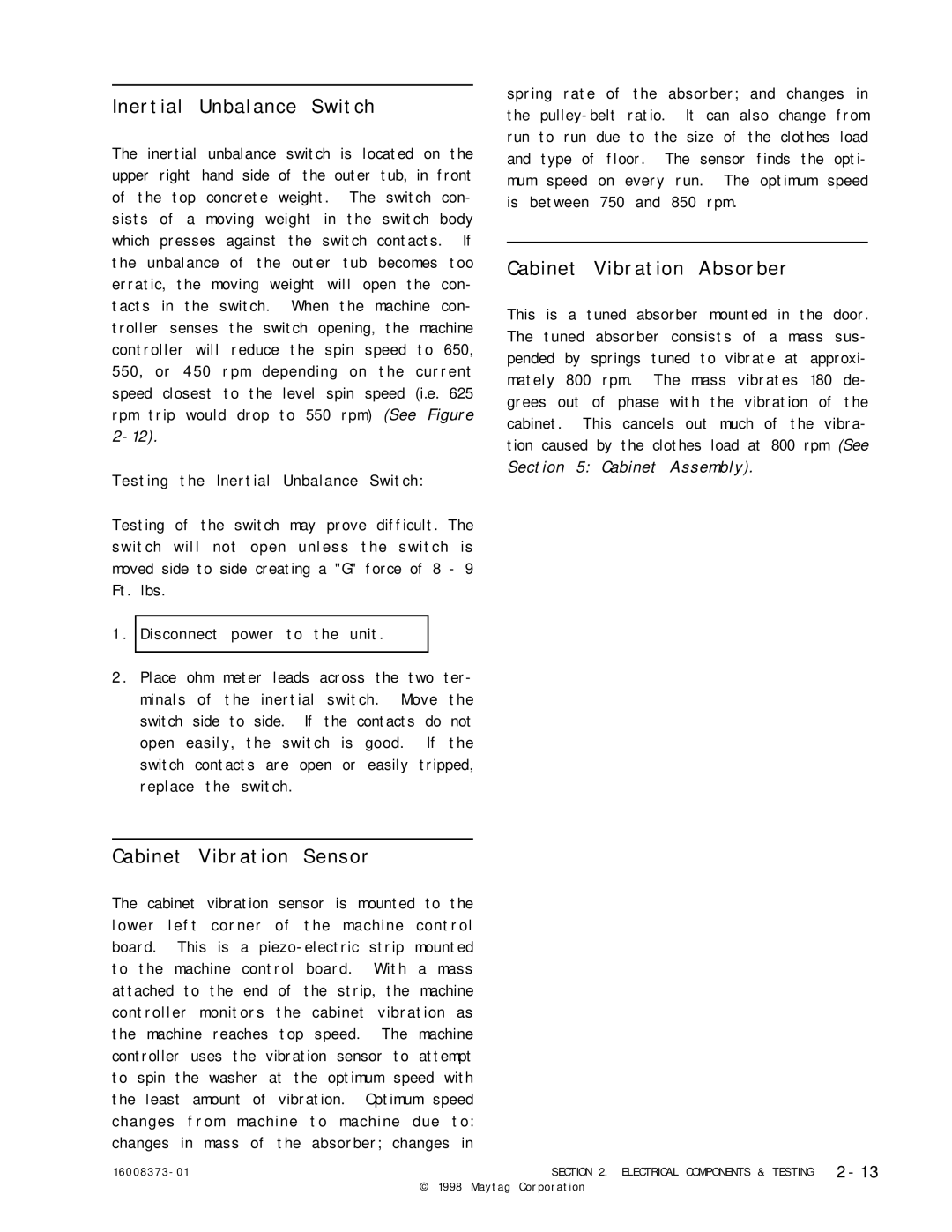
Inertial Unbalance Switch
The inertial unbalance switch is located on the upper right hand side of the outer tub, in front of the top concrete weight. The switch con- sists of a moving weight in the switch body which presses against the switch contacts. If the unbalance of the outer tub becomes too erratic, the moving weight will open the con- tacts in the switch. When the machine con- troller senses the switch opening, the machine controller will reduce the spin speed to 650, 550, or 450 rpm depending on the current speed closest to the level spin speed (i.e. 625 rpm trip would drop to 550 rpm) (See Figure
Testing the Inertial Unbalance Switch:
Testing of the switch may prove difficult. The switch will not open unless the switch is moved side to side creating a "G" force of 8 - 9 Ft. lbs.
1 . Disconnect power to the unit.
2 . Place ohm meter leads across the two ter- minals of the inertial switch. Move the switch side to side. If the contacts do not open easily, the switch is good. If the switch contacts are open or easily tripped, replace the switch.
spring rate of the absorber; and changes in the
Cabinet Vibration Absorber
This is a tuned absorber mounted in the door. The tuned absorber consists of a mass sus- pended by springs tuned to vibrate at approxi- mately 800 rpm. The mass vibrates 180 de- grees out of phase with the vibration of the cabinet. This cancels out much of the vibra- tion caused by the clothes load at 800 rpm (See
Section 5: Cabinet Assembly).
Cabinet Vibration Sensor
The cabinet vibration sensor is mounted to the lower left corner of the machine control board. This is a
1 6 0 0 8 3 7 3 - 0 1 | SECTION 2. ELECTRICAL COMPONENTS & TESTING | 2 - 1 3 |
© 1998 | Maytag Corporation |
|
